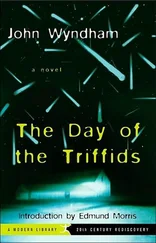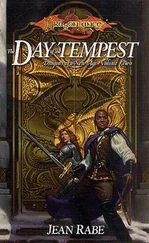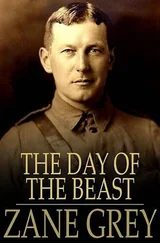At the end of the Rue Littre he turned left again into the Rue de Vaugirard and walked back to where it joined the Boulevard de Montparnasse. He had reached the corner and was looking up and down the main street for a free taxi, when a police motor-cyclist swept into the road junction, jerked his machine on to its stand, and in the centre of the junction began to halt the traffic. By shrill blasts on his whistle he stopped all the traffic coming out of the Rue de Vaugirard, as well as that heading down the Boulevard from the direction of the station. The cars coming up the Boulevard from Duroc were imperiously waved into the right-hand side of the road. He had barely got them all stopped when the distant wail of police sirens was heard from the direction of Duroc. Standing on the corner looking down the length of the Boulevard de Montparnasse, the Jackal saw five hundred yards away a motorcade sweep into the Duroc junction from the Boulevard des Invalides and start to head towards him.
In the lead were two black-leather-clad motards, white helmets gleaming in the sun, sirens blaring. Behind them appeared the shark-like snouts of two Citroën DS 19s in line astern. The policeman in front of the Jackal stood bolt upright facing away from him, left arm gesturing rigidly down towards the Avenue du Maine on the southern side of the junction, right arm bent across the chest, palm downwards, indicating priority passage for the approaching motorcade.
Heeling over to the right, the two motards swept into the Avenue du Maine, followed by the limousines. In the back of the first one, sitting upright behind the driver and the ADC, staring rigidly in front of himself, was a tall figure in a charcoal-grey suit. The Jackal had a fleeting glimpse of the uptilted head and the unmistakable nose before the convoy was gone. The next time I see your face, he silently told the departed image, it will be in closer focus through a telescopic sight. Then he found a taxi and was taken back to his hotel.
Further down the road near the exit from the Duroc Metro station from which she had just emerged, another figure had watched the passing of the President with more than usual interest. She had been about to cross the road when a policeman had waved her back. Seconds later the motorcade swept out of the Boulevard des Invalides across the expanse of cobbles and into the Boulevard de Montparnasse. She too had seen the distinctive profile in the back of the first Citroën, and her eyes had glowed with a passionate fervour. Even when the cars had gone she stared after them, until she saw the policeman looking her up and down. Hastily she had resumed her crossing of the road.
Jacqueline Dumas was then twenty-six years old and of considerable beauty, which she knew how to show off to its best advantage for she worked as a beautician in an expensive salon behind the Champs Elysées. On the evening of July 30th she was hurrying home to her little flat off the Place de Breteuil to get ready for her evening’s date. Within a few hours she knew she would be naked in the arms of the lover she hated, and she wanted to look her best.
A few years earlier the thing that mattered most in her life was her next date. Hers was a good family, a tight-knit group with her father working as a respectable clerk in a banking house, mother being a typical middle-class French housewife and Maman, she finishing her beautician’s course and Jean-Claude doing his National Service. The family lived in the outer suburb of Le Vezinet, not in the best part, but a nice house all the same.
The telegram from the Ministry of the Armed Forces had come one day at breakfast towards the end of 1959. It said that the Minister was required with infinite regret to inform Monsieur and Madame Armand Dumas of the death in Algeria of their son Jean-Claude, private soldier in the First Colonial Paratroops. His personal effects would be returned to the bereaved family as soon as possible.
For some time Jacqueline’s private world disintegrated. Nothing seemed to make sense, not the quiet security of the family at Le Vezinet, nor the chatter of the other girls at the salon on the charms of Yves Montand or the latest dance craze imported from America, le Rock. The only thing that seemed to pound through her mind like a tape-recorded loop going eternally round the same bobbins was that little Jean-Claude, her darling baby brother, so vulnerable and gentle, hating war and violence, wanting only to be alone with his books, scarcely more than a boy whom she loved to spoil, had been shot dead in a battle in some God-forsaken wadi in Algeria. She began to hate. It was the Arabs, the loathsome, dirty, cowardly ‘melons’, who had done it.
Then François came. Quite suddenly one winter morning he turned up at the house on a Sunday when her parents were away visiting relatives. It was December, there was snow in the avenue and crusted on to the garden path. Other people were pale and pinched, and François looked tanned and fit. He asked if he could speak to Mademoiselle Jacqueline. She said, ‘ C’est moi-même ’ and what did he want? He replied he commanded the platoon in which one Jean-Claude Dumas, private soldier, had been killed, and he bore a letter. She asked him in.
The letter had been written some weeks before Jean-Claude died, and he had kept it in his inside pocket during the patrol in the djebel looking for a band of fellagha who had wiped out a settler family. They had not found the guerrillas, but had run into a battalion of the ALN, the trained troops of the Algerian national movement, the FLN. There had been a bitter skirmish in the half-light of dawn and Jean-Claude had taken a bullet through the lungs. He gave the letter to the platoon commander before he died.
Jacqueline read the letter and cried a little. It said nothing of the last weeks, just chatter about the barracks at Constantine, the assault courses and the discipline. The rest she learned from François: the pull-back through the scrub for four miles while the outflanking ALN closed in, the repeated calls on the radio for air support, and at eight o-clock the arrival of the fighter-bombers with their screaming engines and thundering rockets. And how her brother, who had volunteered for one of the toughest regiments to prove he was a man, had died like one, coughing blood over the knees of a corporal in the lee of a rock.
François had been very gentle with her. As a man he was hard as the earth of the colonial province in whose four years of war he had been forged as a professional soldier. But he was very gentle with the sister of one of his platoon. She liked him for that and accepted his offer to dine in Paris. Besides, she feared her parents would return and surprise them. She did not want them to hear how Jean-Claude had died, for both had managed to numb themselves to the loss in the intervening two months and somehow carry on as usual. Over dinner she swore the lieutenant to silence and he agreed.
But for her the curiosity became insatiable, to know about the Algerian war, what really happened, what it really stood for, what the politicians were really playing at. General de Gaulle had come to the presidency from the premiership the previous January, swept into the Elysée on a tide of patriotic fervour as the man who would finish the war and still keep Algeria French. It was from François that she first heard the man her father adored referred to as a traitor to France.
They spent François’ leave together, she meeting him every evening after work in the salon to which she had gone in January 1960 from the training school. He told her of the betrayal of the French Army, of the Paris Government’s secret negotiations with the imprisoned Ahmed Ben Bella, leader of the FLN, and of the pending handover of Algeria to the melons. He had returned to his war in the second half of January and she had snatched a brief time alone with him when he managed to get a week’s leave in August in Marseilles. She had waited for him, building him in her private thoughts into the symbol of all that was good and clean and manly in French young manhood. She had waited throughout the autumn and winter of 1960, with his picture on her bedside table throughout the day and evening, pushed down her night-dress and clasped to her belly while she slept.
Читать дальше












